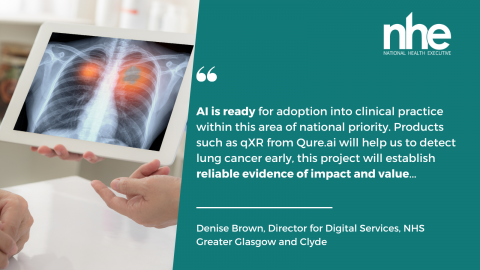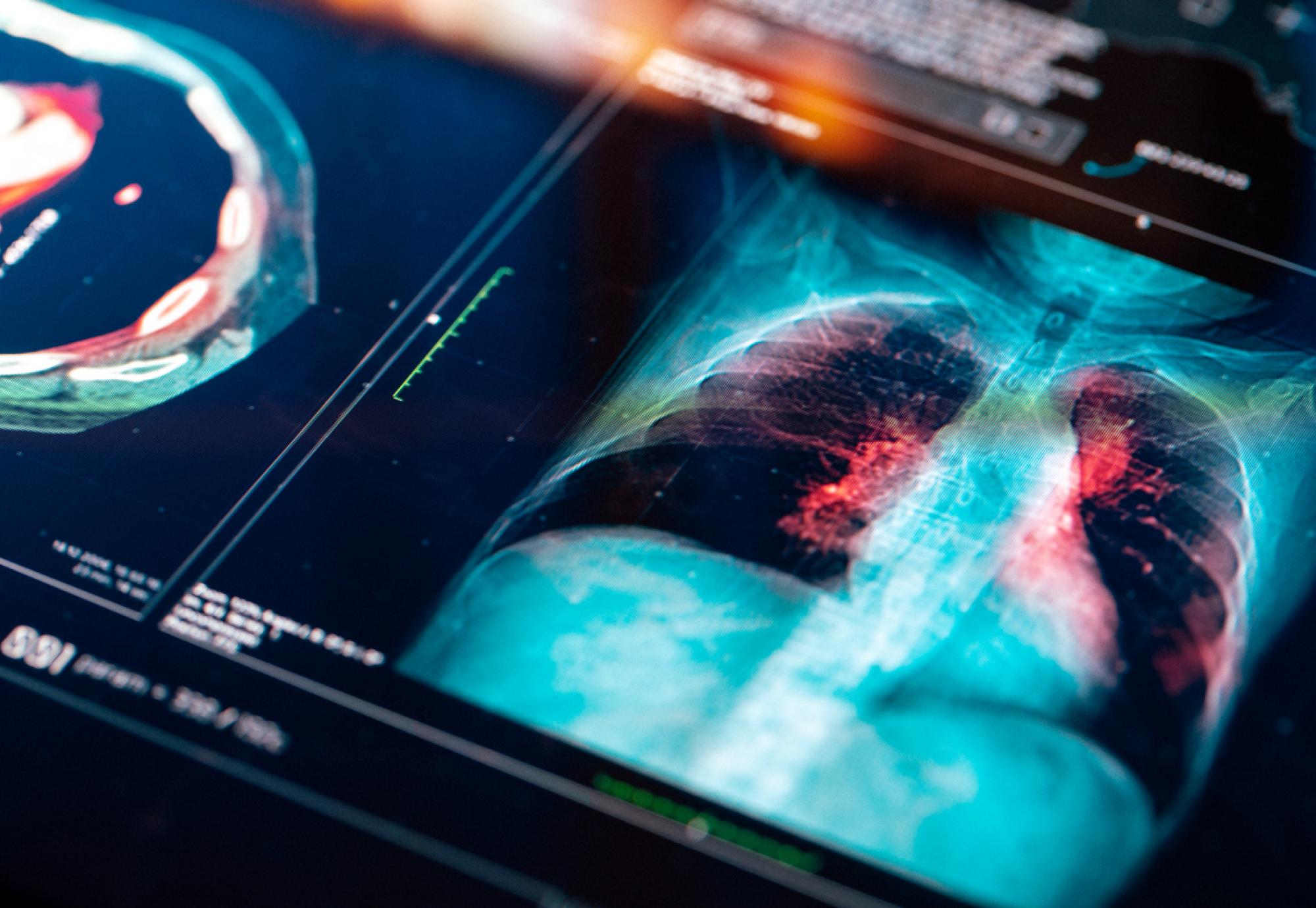NHS Greater Glasgow and Clyde (NHSGGC) has started trials of an AI-powered chest x-ray reporting system to help detect lung cancer earlier.
The innovation, known as qXR, is a collaboration between the University of Glasgow, the Scottish Government and Qure.ai.
The solution automatically separates ‘normal’ chest x-rays and flags abnormalities like masses or lung nodules, which allows clinicians to prioritise accordingly and streamline patient pathways.
There around 5,500 cases of lung cancer diagnosed every year in Scotland, with the disease being the most common cause of death in the country. Cases are expected to rise by 29% for women and 12% for men by 2027.
For lung cancer diagnosed at stage one, more than 55% of patients survive for longer than five years, while at stage two it is closer to 35% – this is in stark contrast to less than 5% for a stage four diagnosis.

Currently, the RADICAL trial is underway at the Inverclyde Royal Hospital, the Vale of Leven Hospital, and the Royal Alexandria Hospital but will be expanded to more NHSGGC sites over the coming months.
David Lowe, a professor of health innovation at the University of Glasgow, said: “Worldwide healthcare systems have a significant challenge in the detection of lung cancer. At present, 40-50% of patients present with advanced or stage 4 cancer, leading to poorer outcomes.”
Prof Lowe, who is also an emergency medicine consultant at NHSGGC, continued: “If we can spot cancer earlier, by speeding up the time and accuracy of the 100,000 chest X-rays performed each year at NHSGGC, we can improve time to further imaging, and subsequent treatment.”
Image credit: iStock



















